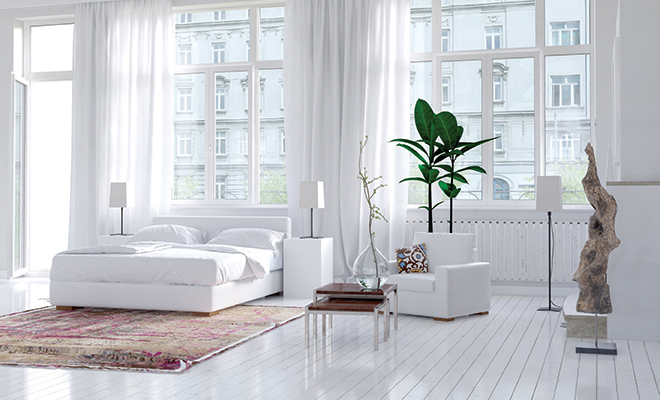
A New Window to the World
Windows play a unique role in home design as both functional and design elements. This means there are many reasons for upgrading a home’s windows. Since window replacement is a major project, you want to be sure you’re making the investment for the right reasons.
Many window problems can be fixed without a full replacement, and in some cases new windows could actually decrease the value of your home. Before you decide to replace, it’s a good idea to weigh the pros and cons.
One of the top reasons for replacing windows is poor performance. This includes windows that are drafty, leaking and rattling as well as windows that allow condensation to form. Windows that don’t easily open or close are also prime candidates for replacement, especially if they’re located upstairs. An additional issue is window glass that has deteriorated and become foggy or scratched, making it hard to see outside. These may all seem like valid reasons for window replacement, but it’s often possible to restore or repair non-functioning windows far more economically than replacing them. A window replacement expert is typically needed to decide what can be repaired and what needs to be replaced.
Another top reason for upgrading windows is appearance. There are valid aesthetic reasons for replacing windows, even if they’re fully functioning or can be repaired. Rotting wooden windows may be detracting from a home’s appearance, or a homeowner may want to replace aluminum windows with something more modern. This type of replacement is often worth the investment, especially for a homeowner who decides to sell the house in the near future. A 2016 National Association of Realtors study reports that homeowners recoup almost 75 percent of their new window investment after resale. Even if you don’t plan on selling soon, you may decide that changing your windows for your own enjoyment of your home is worth the investment.
According to Consumer Reports, saving energy should not be the main reason for window replacement. Although ads may promise big savings on your energy bill following window replacement, most homeowners only see about a 12 percent savings. With the cost for new windows and installation on average between $8,000 and $24,000, it takes most homeowners many years of lower energy bills to recover their upfront investment.
Safety and security are additional reasons for replacing windows as well as sliding glass doors. The easiest point of access for an intruder is often a window or door that can be easily broken or that doesn’t close or lock properly, and in some cases replacement is the only answer. If greater window safety is wanted, modern replacement windows in laminated or tempered glass are stronger and more resistant to impacts. When shattered, they break down to granular chunks that are less likely to cause injury than shards from older windows.
Besides improving a home’s appearance and security, modern windows offer some additional benefits that may encourage homeowners to upgrade. Double pane windows can help buffer outside noise, and new window coating technology can block harmful ultraviolet rays that fade and deteriorate floors, carpets, fabrics and paints. Tilting sashes that make it easier to wash exterior glass from indoors are another benefit available with new windows.
Before replacing windows, homeowners should consider the age and style of their home. For many older homes, according to HGTV, “original windows are an integral part of a house’s character” and should be saved. A window restoration expert can recommend alternatives to replacement, such as adding caulk, weatherstripping and storm windows to increase energy efficiency.
When can new windows actually decrease the value of your home? If you own a historic home, your windows may be historic features that add to your home’s value. You may think that new vinyl windows will make your life easier, but there’s a good chance that future potential buyers of your house will hate them. Some manufacturers offer new windows in historic styles, but it can be tricky when you’re trying to mix old and new. Also, you may be prohibited from replacing windows and other architectural features if you live in an officially designated historic neighborhood. If this is the case, check with state and local regulations before changing the windows in your historic home, even if you plan to switch out newer vinyl windows for historically accurate recreations.
Window replacement is beyond the DIY skills of most homeowners. If you’ve considered all the pros and cons and you’re ready to move forward with replacement, hire a window replacement professional who understands local building codes and weather conditions. You can find qualified installers on Porch.com, a free site that connects homeowners with local contractors, or by inquiring at any home improvement store that sells new windows. ■
Sources: consumerreports.org, HGTV.com and time.com.







